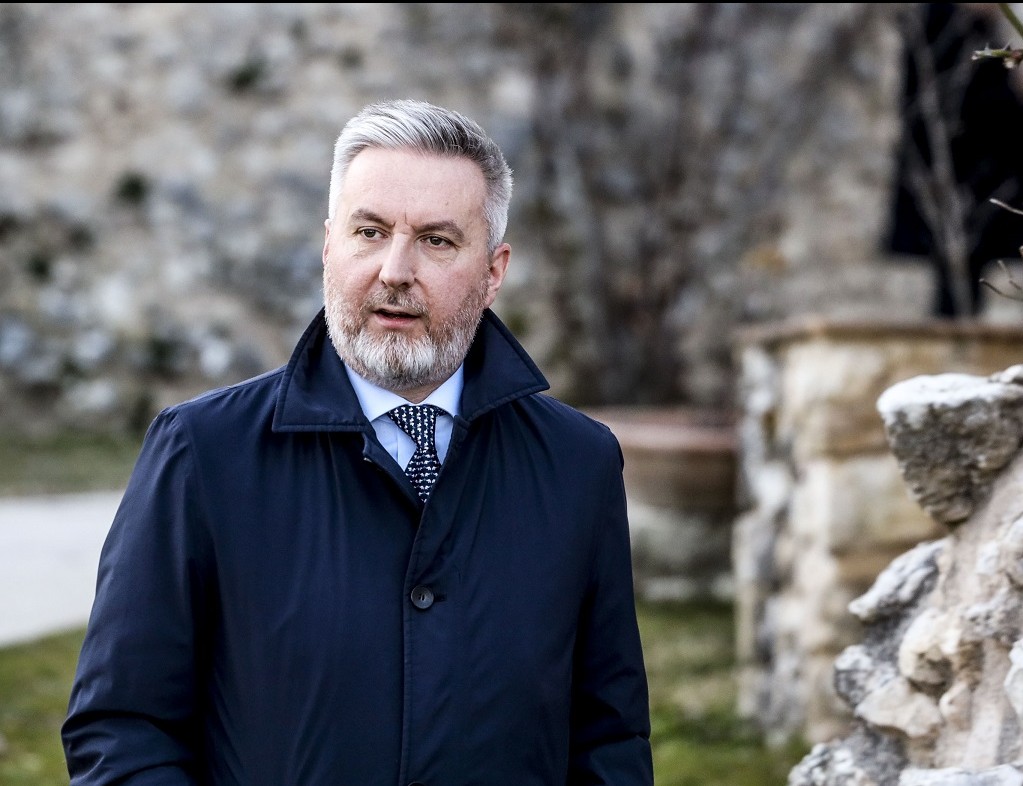This has been a busy week for Italian defence minister Lorenzo Guerini, who on Thursday met his French counterpart Florence Parly in Rome after travelling to Ankara on Monday. The timing is not incidental, as France and Italy share a series of dossiers – and concerns – which deal, directly or indirectly, with Turkey.
Having kept closely in contact during lockdown, the two ministers expressed “great satisfaction for the excellent state of relations” between their countries. They also stressed their intention to strengthen Italy and France’s partnership on a range of matters.
In Ms. Parly’s own words, “Italy is an essential partner for France and Europe. Our armies know and respect each other. We share the same values and we share the same Mediterranean tropism.”
The most urgent topic of confrontation concerned the Libyan crisis and warranted a visit to the headquarters of the EU’s naval operation “Irini”. The latter is meant to aid the enforcement of the UN arms embargo on Libya, which is being allegedly broken by Turkey and Russia. “We cannot accept false speeches anymore, with virtuous grievances in one hand and arms trafficking in the other,” said Ms. Parly in a thinly veiled jab to Ankara.
Both countries have been calling for a ceasefire in Libya and for a diplomatic solution for the country’s two warring factions, respectively led by UN-recognised prime minister Fayez al Serraj and general Khalifa Haftar.
As the embargo is the EU’s preferred way to facilitate the ceasefire, France is supporting operation Irini with one frigate, and Italy’s parliament is on its way to send over 500 soldiers, one naval and three aerial units. Mr. Guerini declared his readiness to “aid dialogue and cooperation between all actors” in this highly sensitive matter.
The two countries also converge on the Sahel, an increasingly unstable region due to jihadist terrorism and illegal trafficking. To deal with this, Ms. Parly has already created an international task force dubbed Takuba, and Italy has been discussing joining with 200 soldiers and 20 land vehicles. As Mr. Guerini noted, the Sahel region is of “high strategic importance for Italy, too.” Ms. Parly has said that “Italy’s contribution would be a precious resource for the fight against terrorist groups.”
France and Italy also share a fair deal of economic interests in the eastern Mediterranean, particularly in Cypriot waters, where their energy companies Total and ENI are co-licensed to drill for oil. Ankara, however, affirms its right to pursue unwarranted oil exploration drillings in the area.
Mr. Guerini, who had said that the situation was being closely monitored in November, claimed that “dialogue and cooperation are the only instruments in the search for a negotiation, which in no case can accept provocative behaviours.”
And, indeed, there have been serious provocations. On June 10th, a French frigate sailing under the flag of NATO operation “Sea Guardian” was threatened by a Turkish warship escorting what NATO suspected to be a commercial cargo loaded with weapons for Libya. Ankara has denied this and accused the French of aggression.
The episode was met with silence from NATO, whose members include Turkey. French president Emmanuel Macron has called NATO “brain dead” once again. Consequently Ms. Parly and Mr. Guerini have been talking about NATO’s future; though agreeing that “the Alliance and the transatlantic bond represent one of the two pillars of security, complementary to the European Union,” the two called for increased understanding and complementarity between NATO and the EU, for the sake of overall effectiveness.
In parallel to NATO, the European Union has been discussing about increasing funding for its joint armed defence project. The French and Italian defence ministers had signed a letter together with their German and Spanish counterparts, Annegret Kramp-Karrenbauer and Margarita Robles, addressed to the EU’s High Commissioner Josef Borrell, carrying an invitation to sustain a high level of ambition. Budget for the EU common defence project is yet to define for 2021-2027.
On a smaller level, France and Italy have already embarked in a series of joint ventures, including ship building (Naviris, spawned by Fincantieri and Naval Group), space (Leonardo and Fincantieri’s Space Alliance), and anti-missile defence (Airbus and Leonardo together with the British company BAE Systems).
As for armed tanks fo the future, France and Germany have partnered up through the MGCS programme and closed the doors to their allies; Ms. Parly and Mr. Guerini mentioned they would keep on discussing the matter.








